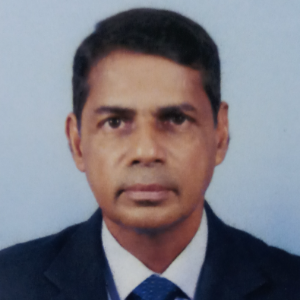Title : Assessing the effectiveness of digital farm field school extension approach for technology dissemination to tea smallholdings in Sri Lanka
Abstract:
The tea smallholding sector plays a dominant role in the tea industry in Sri Lanka. However, they faces many constraints such as lack of technology, scarcity of skilled labor and inputs, low productivity, high cost of production, etc. In searching viable mechanism to address the above issues, Farmer Field School (FFS) Approach was implemented as a pilot project by Tea Smallholding Development Authority (TSHDA) in Sri Lanka through the Rehabilitation of Degraded Agricultural Lands Project (RDALP) funded by Food and Agriculture Organization (FAO). Due to COVID-19 pandemic situation, FFS programs were conducted in virtual platform and named as a Digital farmer field school (DFFS). Learning and knowledge sharing sessions of DFFS were conducted via Zoom by creating approximately 30 WhatsApp groups, with the participation of farmers, extension officers. This study aims to assess the effectiveness of the Digital Farmer Field School (DFFS) extension approach to improve the adoption rate of cultural practices toward increasing tea smallholdings’ land productivity and income generation. The stratified purposive sampling technique was performed to select 50 tea smallholders who participated in DFFS programs and another 50 farmers who have not attended the same programs (NDFFS Group) in five Grama Niladhari Divisions in the Kandy district. A cross-sectional field survey was administrated to collect primary data using a pretested survey instrument and validated its internal consistency by applying a reliability test (Cronbach alpha value of 0.8224). A scoring system, 5-point Likert scales, and indexes were developed to measure variables, and descriptive analysis, hypothesis testing, and multiple regression model was used to explain its relationship. The result shows there was a significant difference between DFFS and NDFFS tea smallholders on the ICT literacy index, the Knowledge and adoption index related to agricultural practices, the productivity of land and average monthly income from tea land. The multiple regression model is fitted significantly (P < 0.05). R square of the model expresses that 92% proportion of the variance in DFFS effectiveness is explained by ten independent variables in the model.
Accordingly, organizational assistance, facilitation conditions, effort expectancy, income generated from tea land and social factors such as age, gender, work force as family member’s education and affordability for ICT use are positively correlated with degree of effectiveness whilst experience is negatively correlated with the same. The result of study revealed that organizational assistance, effort expectancy and facilitation conditions highly influence on the effectiveness of digital farmer field school. DFFS participants have gained a considerable ICT literacy when compare with NDFFS farmers. This study proved that the DFFS approach is effectives an agricultural innovation and dissemination platform for improving farmers’ knowledge and changing their attitude for the adoption of cultivation practices towards improving tea smallholdings’ land productivity and income generation in Sri Lanka. DFFS is an information and communication technology (ICT) based digital learning environment for farmers and other stakeholders in the rural knowledge system and needed policymakers’ attention to implementing DFFS approaches to technology transferring and attract diversified farmer groups and other stakeholders in the different sectors of the Sri Lanka as well as the globe.



